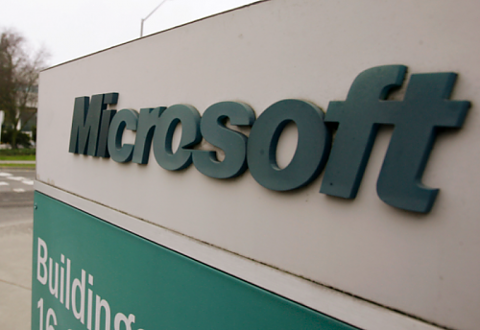
Microsoft wants exemptions to President Trump’s executive order that froze immigration from seven countries for 90 days. That order, which also halted refugee inflow for 120 days, has resulted in border control denying visa holders entry into the United States. As proposed in an
open letter signed by Brad Smith, Microsoft’s chief legal officer, the exemptions would permit workers with visas sponsored by U.S. companies to re-enter the country, along with students with visas. “At Microsoft we have seen these needs first-hand through some of our 76 employees who are impacted by last week’s order and, together with their 41 dependents, have nonimmigrant visas to live in the United States,” Smith wrote. “We believe that limited but important steps to help all such individuals can be taken by the Secretaries of State and Homeland Security, consistent with national security and the authority that the President expressly gave to them.” The exemption, titled “Responsible Known Travelers with Pressing Needs,” proposes that a visa holder allowed into the U.S. must meet four requirements. Quoting the letter:
- The applicant initially must fall into one of three categories: (a) an individual who already holds a valid nonimmigrant work visa sponsored by a U.S. employer enrolled in the E-Verify program, which helps ensure responsible visa use; (b) an individual who already holds an F-1 student visa to pursue a degree at an accredited U.S. university and can provide documentation from the university showing that he or she is currently enrolled and in good standing; or (c) be an immediate family member of one of these individuals and hold a derivative nonimmigrant visa;
- The individual must have committed no crime in the United States;
- If applying to depart from the U.S. and subsequently re-enter, the purpose of the travel must be for an exigent family-related emergency or for the business need of an employer. The travel abroad would be for a duration of no longer than two weeks; and
- Business travel abroad would not include passage through the countries covered by the executive order. Personal travel abroad for exigent family-related emergencies may allow for travel to any country on a case-by-case basis.
As of the afternoon of Feb. 2, individuals from Iran, Iraq, Libya, Somalia, Sudan, Syria, and Yemen who have an immigrant or non-immigrant visa are not allowed into the U.S. for 90 days. The issuance of new visas has also been suspended until further notice. Those with green cards are allowed in—although some were denied entry in the chaotic first days following the issuance of the executive order on Jan. 27. Microsoft isn’t the only technology company considering some sort of legal response to the executive order. Earlier this week, Apple announced that it was considering legal action against the federal government over it. Apple CEO Tim Cook claims that hundreds of employees were affected by the order. “More than any country in the world, this country is strong because of our immigrant background and our capacity and ability as people to welcome people from all kinds of backgrounds. That’s what makes us special,” Cook said, according
to The Wall Street Journal. “We ought to pause and really think deeply through that.” Amazon has also filed a declaration supporting the Washington state attorney general’s lawsuit against the federal government over the order. Other state attorneys general have spoken out, as well. For the tech industry, which draws a significant portion of its workforce from overseas, the issue of immigration is a particularly fraught one. President Trump is reportedly
planning to issue a new directive that would overhaul existing work-visa programs, which could set some tech firms scrambling to adjust.
 Microsoft wants exemptions to President Trump’s executive order that froze immigration from seven countries for 90 days. That order, which also halted refugee inflow for 120 days, has resulted in border control denying visa holders entry into the United States. As proposed in an open letter signed by Brad Smith, Microsoft’s chief legal officer, the exemptions would permit workers with visas sponsored by U.S. companies to re-enter the country, along with students with visas. “At Microsoft we have seen these needs first-hand through some of our 76 employees who are impacted by last week’s order and, together with their 41 dependents, have nonimmigrant visas to live in the United States,” Smith wrote. “We believe that limited but important steps to help all such individuals can be taken by the Secretaries of State and Homeland Security, consistent with national security and the authority that the President expressly gave to them.” The exemption, titled “Responsible Known Travelers with Pressing Needs,” proposes that a visa holder allowed into the U.S. must meet four requirements. Quoting the letter:
Microsoft wants exemptions to President Trump’s executive order that froze immigration from seven countries for 90 days. That order, which also halted refugee inflow for 120 days, has resulted in border control denying visa holders entry into the United States. As proposed in an open letter signed by Brad Smith, Microsoft’s chief legal officer, the exemptions would permit workers with visas sponsored by U.S. companies to re-enter the country, along with students with visas. “At Microsoft we have seen these needs first-hand through some of our 76 employees who are impacted by last week’s order and, together with their 41 dependents, have nonimmigrant visas to live in the United States,” Smith wrote. “We believe that limited but important steps to help all such individuals can be taken by the Secretaries of State and Homeland Security, consistent with national security and the authority that the President expressly gave to them.” The exemption, titled “Responsible Known Travelers with Pressing Needs,” proposes that a visa holder allowed into the U.S. must meet four requirements. Quoting the letter:


